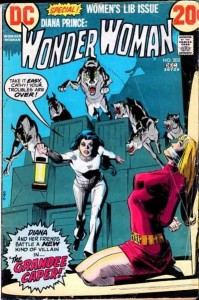
 I recently posted in a Reddit thread about superhero novels and thought that the list I put together there might form an interesting blog post.
I recently posted in a Reddit thread about superhero novels and thought that the list I put together there might form an interesting blog post.
Superhero novels are near and dear to my heart for several reasons.
So here’s some of my favorites:
From the Notebooks of Dr. Brain by Minister Faust is awesome superhero fiction. It’s told by the therapist of a superhero team that closely resembles the Avengers. Faust also has The Coyote Kings of the Space-Age Bachelor Pad.
Count Geiger’s Blues by Michael Bishop is amazing. Along the same lines is Bishop’s Brittle Innings, the story of a baseball playing monster.
The Wild Cards series edited by George R.R. Martin (of GoT fame) is tons and tons of fun and there are a LOT of them for those of us who like to read at a fast and furious clip.
In Hero Years I’m Dead by Michael Stackpole is terrific along with Once a Hero. I wish Stackpole would write more in this world.
Carrie Vaughn After the Golden Age is told from the point of view of the unpowered daughter of a pair of superheroes, Captain Olympus and Spark.
Playing for Keeps by Mur Lafferty.
Austin Grossman’s Soon I Will Be Invincible is told from alternating experienced villain and novice hero viewpoints.
Michael Chabon’s The Amazing Adventures of Kavalier & Clay is a classic.
The Sugar Frosted Nutsack by Mark Leyner is, like all of Leyner’s books, hysterical, but this time with superheroes.
Those Who Walk in Darkness by John Ridley is the beginning of a series that I found reminiscent of joint online project Shadow Unit, created by Elizabeth Bear, Holly Black, Leah Bobet, Emma Bull, Sarah Monette, and Will Shetterly.
Nobody Gets the Girl by James Maxey. Series.
Evil Genius by Catherine Jinks is YA superhero fantasy.
Karma Girl by Jennifer Estep is frothy and funny and sweeps you along in a nicely satisfying story. First of a series.
Along the same lines is Black and White, the story of a superhero and a supervillain friendship by Jackie Kessler and Caitlin Kittredge. First in a series.
Santa Olivia by Jacqueline Carey (also known for her Kushiel adult epic fantasy series) is the story of a group genetically engineered for superpowers. First of a series.
If you want something that goes back to some of F&SF’s roots, try Doc Savage or A Feast Unknown by Philip Jose Farmer.
...
 So, much of the Internet’s time, at least on the spec-fic side of things, was taken up this week by recent convulsions surrounding Night Shade Books.
So, much of the Internet’s time, at least on the spec-fic side of things, was taken up this week by recent convulsions surrounding Night Shade Books.
Night Shade Books is a small press run by Jeremy Lassen and Jason Williams. Among the books they’ve published are Paolo Bacigalupi’s The Windup Girl, Iain M. Banks’ The Algebraist, the novelizations of the Girl Genius books by Phil and Kaja Foglio, and on and on. In short, they publish excellent stuff.
Night Shade’s been having problems for years. SFWA, the Science Fiction and Fantasy Writers of America, got involved in 2010. Within the past few months, the authors have been asking SFWA what’s up with Night Shade. Here, I get a little confused. I find it difficult to believe that any publisher is quaking in their boots at the threat of being delisted by SFWA. All that being delisted does, as far as I can tell, is prevent that publisher from being considered a “professional market” that people can use to qualify to become a member of SFWA. Big whoop. If this is the biggest club an author has in their arsenal, we are all in terrible trouble.
...

Overall
Writing is a skill – like any other skill, you get better and more efficient at it. Successful writers write steadily. Don’t worry about speed. Think of every word written down as one closer to your goal.
Writing is also a cyclical process. Ideas are generated and get fed back in. Don’t sweat the messiness as this process is underway because readers will never see anything but the final results. No first draft will be perfect.
Day One
Describe one character with 5-7 single sentences that each describe him/her/it in a specific area, such as their love life, education, current situation, occupation, hobbies, problems, etc.
Day Two
For each of your sentences, write two more sentences that each on it, creating a paragraph about each area of description.
Day Three
Write a single sentence about each life area that runs counter to the previous sentiment. For example, a paragraph about how the character really wants children might have a sentence about how they’re sterile. A paragraph about how they’re happily married might merit a sentence about feeling attracted to the new office manager at work.
...
Want access to a lively community of writers and readers, free writing classes, co-working sessions, special speakers, weekly writing games, random pictures and MORE for as little as $2? Check out Cat’s Patreon campaign.

"(On the writing F&SF workshop) Wanted to crow and say thanks: the first story I wrote after taking your class was my very first sale. Coincidence? nah….thanks so much."

(science fiction, flash fiction) When Bjorn and his fellows were selected to supply context for the alien overlords who kept insisting they were just there for the Earth’s own protection, he’d expected something different.


This site is protected by reCAPTCHA and the Google Privacy Policy and Terms of Service apply. This site is a participant in the Amazon Services LLC Associates Program, an affiliate advertising program designed to provide a means for sites to earn advertising fees by advertising and linking to Amazon.com.